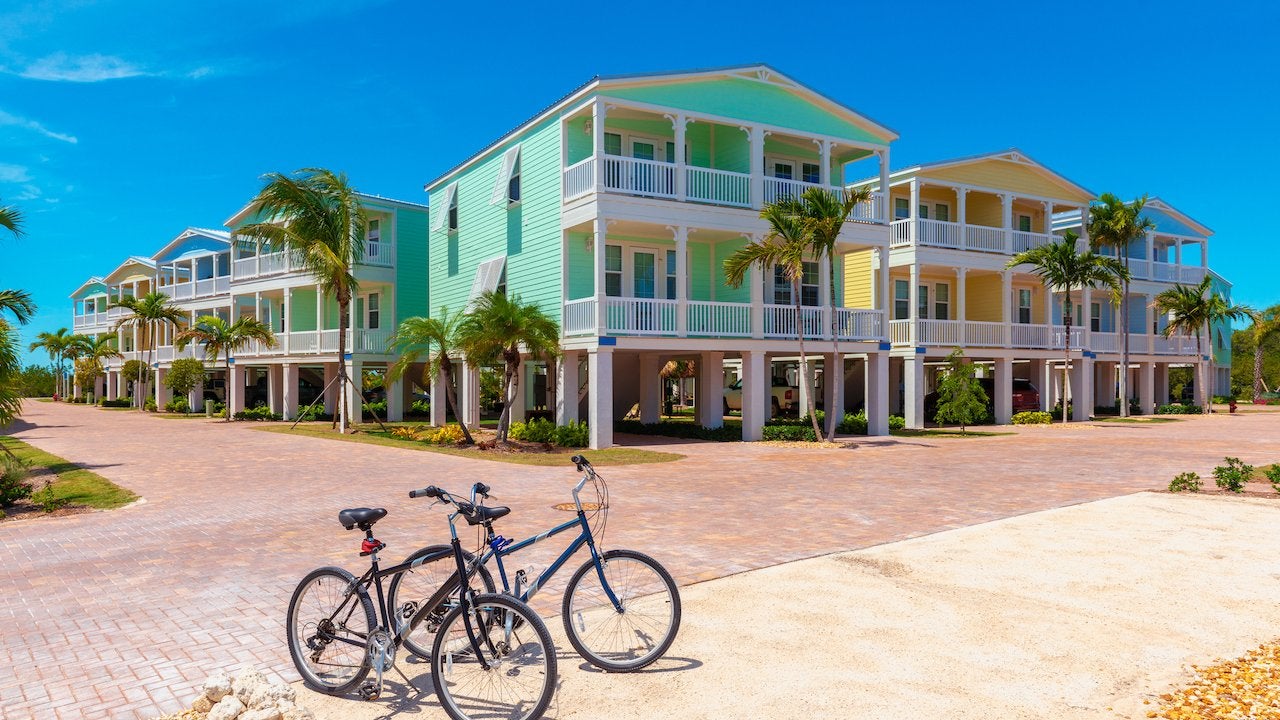Selling A House In Florida
If you own a home in Florida and are thinking about selling, here’s good news: You can probably find someone to buy it. The number of existing homes available for purchase in the Sunshine State is very low — just 1.1 months supply of single-family homes as of April 2022, according to data from the trade association Florida Realtors. However, selling a house in Florida isn’t as simple as posting a listing and watching the offers roll in. Here’s everything you need to know to maximize your profit and minimize the time you have to wait for closing.
Are you ready to sell?
Before you put the house on the market, you need to have a game plan for what’s next in your life. Are you planning to rent somewhere? Or will you need to sell your current house while buying another so you can use the proceeds for a down payment on your next property? Remember, the seller’s side is all smiles right now, but being a buyer is a totally different story in many places around the country. Be sure to take a look at your finances, too, to get a sense of what kind of mortgage you’ll be able to qualify for.
Preparing to sell
Once you’ve decided to list your home, it’s important to answer three questions.
Is it worth upgrading your home before you sell?
If your kitchen feels outdated or your backyard could use a new deck, you may already be running the numbers on completing those projects to boost the sale price. But, while you might be able to increase the home’s value, you will likely struggle to recoup the entire cost of the projects. Pre-sale upgrades don’t have to be major renovations. Instead, you can make simple enhancements that will look especially appealing in pictures online, like a fresh coat of paint or a new flower bed. And according to Florida Realtors, 33 percent of buyers are looking for the ability to customize and choose their own design features. So your renovation might immediately turn into another one for the next owner if they don’t share your sense of style.
What should you repair before you sell?
If you have water damage, a cracked hardwood floor or some other noticeable issue, you’ll probably want to address it before letting prospective buyers take a look. Obvious problems can turn them away or lead to low-ball offers. Additionally, it’s smart to hire a home inspector to do a pre-listing inspection that will uncover any other issues.
Should you stage your home?
Part of selling a house in Florida is helping buyers envision themselves there. And right now, if it still looks like your home — with your family pictures, your clutter and your old couch — they might not immediately fall in love. Home staging is one option that can create a more welcoming feel. It can cost you as little as a few hundred bucks and offers a solid return on investment. A report from the National Association of Realtors (NAR) revealed that 47 percent of real estate agents reported offers increasing between 5 and 15 percent due to home staging efforts.
When is the best time to sell a house in Florida?
Generally, the best time to sell your house is when it will sell the fastest. Based on 2021 data from Florida Realtors, June is the busiest month in the state for buying a home: The median time to contract was just eight days. However, it’s important to note that every season is a good time to sell a house in Florida. The median days on market in December was still a speedy 12 days.
Finding a local Realtor
Finding a real estate agent will help you understand the best time to list your house, how to market it effectively and what to do to attract a larger number of buyers. As a seller, you’ll need to pay your agent’s commission fee as well as that of the buyer’s agent — but that investment can be well worth it. If you try to do the work yourself as a For Sale By Owner (FSBO) listing, you can miss out on a lot of money. According to the NAR, the average listing with an agent sold for $58,000 more than an FSBO listing in 2020 (the most recent timeframe for the data). Make sure to ask these important questions when you’re interviewing potential Realtors.
Price your home competitively
Don’t let the headlines of low supply and hot demand fool you into getting greedy. When you list your Florida home, you want the price tag to capture the attention of loads of house hunters. If you price it too high, you’re likely to turn away some prospective buyers. So what does “competitively” mean? It’s simple: Work with your real estate agent to review comps in the area and find the sweet spot for a listing price. If you can inspire a bidding war, you might be lucky enough to land more. The situation happens regularly here: According to Redfin data, nearly 44 percent of recent sales in Florida were above list price.
Documents and disclosures in Florida
Seller’s disclosures
Home sellers in Florida are required to inform buyers of defects that might impact the value of the property but are not readily observable. Has the roof ever leaked? Have there been any past water intrusion issues? Technically, you don’t have to share these details in written format; you can tell buyers verbally. However, the Northeast Florida Association of Realtors provides a Seller’s Property Disclosure form that you can complete to verify you handled your duties as a seller.
Required documents
You can also expect to sign away on some additional disclosures, including a flood insurance notice, a form regarding whether sex offenders live in the area and a disclosure about sinkhole-related problems. You also need to include a property tax disclosure that informs prospective buyers about their property tax bill.
Other common documents
If your home is near the water, as so many in Florida are, you will likely need to complete the coastal properties disclosure statement. This lets buyers know about the potential for shoreline erosion. And if you live in a community or building that’s run by a homeowners association, expect to hand over a complete look at the board’s past minutes.
Need to sell your home fast? Consider these alternatives
- Find an iBuyer: Companies like Opendoor and RedfinNow will give you an offer on your home without even seeing it. The process of iBuying is designed to save loads of time – you might get an offer within 24 hours. However, there is a tradeoff: You will likely make less money than you would with a traditional listing.
- Look for a cash offer: One of the reasons selling a home can take so long is that a mortgage-backed transaction involves a lender, which needs time to approve the buyer’s creditworthiness. Skip that hassle by finding a buyer who can pay upfront, no borrowing necessary. Cash transactions are common in Florida, according to Redfin, particularly in places like Port St. Lucie, Cape Coral, Naples and West Palm Beach.
- Sell as-is: If you list your home as-is, you’re basically putting a billboard up that says, “Let’s skip the back-and-forth bargaining about repairs and concessions.” By informing buyers that you aren’t going to make any changes, you may be able to get to contract faster.
- Add some quick curb appeal: Rather than spending time on larger fixes or home staging, focus on the fastest ways to make your home look better to buyers. Clean the windows, power wash the driveway, plant some shrubs by the front door — dress up your home for sale without too much fuss.
The closing
Cost of selling a home in Florida
As you think about how much you’ll make from the sale, you should also think about how much you’ll need to spend to make the deal happen. Here’s a look at the costs of selling a house, which will eat into your profit.
Real estate commissions
The payment to the real estate agents handling the transaction will be the biggest chunk of money associated with selling your home. The most common commission is around 3 percent of the purchase price to the selling agent and 3 percent to the buying agent. However, that fee has been falling in many places, so you should inquire about the potential for a discount. For example, if you can negotiate down to 2.5 percent and you sell your home for $400,000, that 0.5 percent discount represents $2,000 in savings.
Seller’s closing costs
In addition to handing over money to the agents involved, here’s a rundown of other closing costs sellers might pay.
- Title insurance: In most places across Florida, the seller pays for title insurance to protect against the rare event of a lien against the property. The fee is based on the value of the property, and it is a tiered pricing structure: $5.75 per $1,000 up to $100,000 of liability, plus an additional $5.00 per $1,000 up to $1 million. (The structure continues to change as the value increases.) As an example, if your buyer purchased your home for $400,000 and made a down payment of $80,000, the title insurance for the owner’s policy would be $2,075.
- Transfer taxes: Commonly referred to as real estate transfer taxes in other places, this fee is known as the documentary stamp tax in Florida. It’s the fee you’ll pay to transfer ownership of the property. In most places, this is 70 cents per every $100 of value, but it is slightly lower on single-family homes in Miami-Dade county.
- Escrow fees: You will likely need to pay for an escrow account to hold the buyer’s earnest money. The fee will vary based on the price of the home.
- Seller concessions: You could wind up offering concessions — paying for a portion of the buyer’s closing costs if an unexpected issue comes up in the home inspection.
- Other expenses: Other costs you may need to account for include real estate attorney fees, prorated property taxes and wire fees for transferring money.



